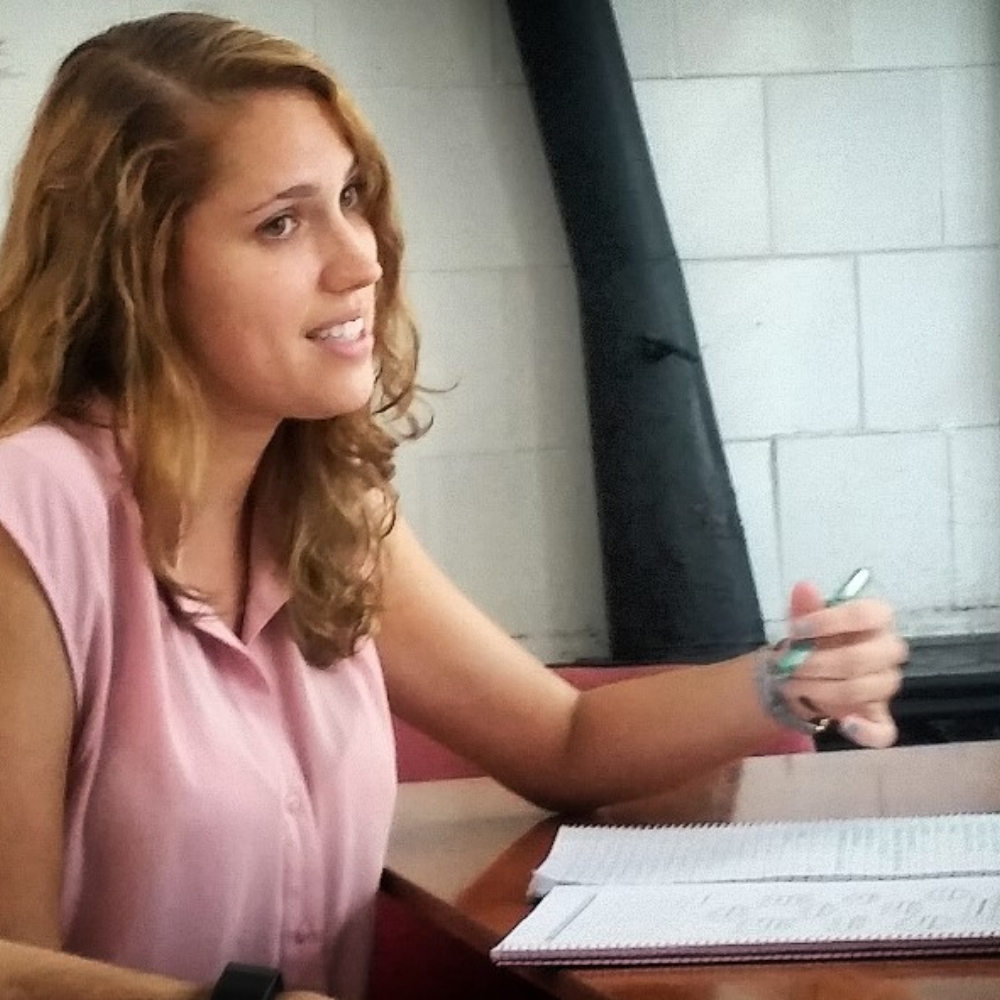
Take at least one course in Spanish!
Dear Alicia,
Since you’re thinking about and finalizing your choices for courses while you study abroad in Spain, I feel I must recommend something important—take at least one class in Spanish! Although programs will vary greatly in what kind of classes they offer, I feel that studying in Spanish is something that you shouldn’t miss out on, no matter what the situation you find yourself in!
Why is it valuable?
Language is such an integral part of the cultural experience. It’s nearly impossible to separate language and culture and so attempting to integrate the language into your classroom experience will help you connect more with the Spanish way of life. Not only will this enrich your experience here in Spain, but gaining genuine listening and communication skills in the Spanish language can be really useful when you return home. Speaking a second language can definitely open new doors for you in the job world.
Who is it valuable for?
 EVERYONE! Seriously, even if you have minimal Spanish language skills, this is a golden opportunity. While it will obviously be harder for beginners to catch on, the initial struggle is worth your while. As a language teacher, I can honestly say that I see more progress in students with a very low starting level who really engage and put themselves into constant contact with the language they are learning than I do with students who already have a decent level, but don’t bother to use the language in a challenging way. Wherever you fall on the spectrum, get yourself into a class in Spanish!
EVERYONE! Seriously, even if you have minimal Spanish language skills, this is a golden opportunity. While it will obviously be harder for beginners to catch on, the initial struggle is worth your while. As a language teacher, I can honestly say that I see more progress in students with a very low starting level who really engage and put themselves into constant contact with the language they are learning than I do with students who already have a decent level, but don’t bother to use the language in a challenging way. Wherever you fall on the spectrum, get yourself into a class in Spanish!
Okay, so what are some of my options?
Depending on your program and level of Spanish, the norm may be to take all of your classes in Spanish, all in English, or some combination of the two. If you already know you fall into one of the categories that includes Spanish, I commend your choice! If you’re only planning to study English, let me try to change your mind…
 Courses taught in Spanish by your program: Taking a course in Spanish with your program means that you will be with other foreigners instead of Spaniards. This is really good for learning as teachers will be conscientious about speaking slowly, choosing words that are within your vocabulary, and checking understanding periodically. However, keep in mind that this mindful way of speaking and listening may not be your experience outside of the classroom. You may need to remind yourself not to get discouraged if you can understand your teacher perfectly, but nothing that your host brother says. It will take more time to get used to the local dialect. Revel in the process.
Courses taught in Spanish by your program: Taking a course in Spanish with your program means that you will be with other foreigners instead of Spaniards. This is really good for learning as teachers will be conscientious about speaking slowly, choosing words that are within your vocabulary, and checking understanding periodically. However, keep in mind that this mindful way of speaking and listening may not be your experience outside of the classroom. You may need to remind yourself not to get discouraged if you can understand your teacher perfectly, but nothing that your host brother says. It will take more time to get used to the local dialect. Revel in the process.
Pro-Tip: For complete beginners—really take advantage of your Spanish language course; don’t waste this time by speaking to your classmates in English. If you feel that your classmates are not taking it seriously enough and you could be progressing more, don’t be afraid to speak to your teacher about doing extra work outside of class, switching levels, etc. For those with some Spanish upon arrival—challenge yourself to use your Spanish from the beginning! A Spanish language course is very useful, but it can get a bit mechanical as you work through topics like grammar and pronunciation. In an additional course (even something fun, like Spanish cuisine) you can learn a lot more vocabulary and get more practice listening and expressing yourself, which may be much more useful in terms of application.
Direct Enrollment in a course at the local university: In my opinion, this is the best immersion you can ask for when studying in Spanish. Although probably better suited for those with some previous knowledge of the language, if you motivated, you can make it work! This experience will be the most ‘authentic’ as you will be taught by a Spanish-speaking professor, in the way that she speaks to and teaches other native-speakers. The teaching style will reflect norms of the Spanish education system (more about that here, where Claudia shares her experience completing a degree in Spain). And the language will be natural, not graded to your level in order for you to understand.
This ‘authenticity’ is both the best and worst part of this option—it will most likely be really difficult for you to understand everything (taking into consideration the pace, accent, etc) and this often deters many foreign students. However, if you can stick-it-out and work through the frustration, you will find that your Spanish will improve greatly and you will start to understand the average person on the street talking at their normal pace—something that may not happen with program courses.
Pro-Tip: I recommend taking a course in your major (which you may not be taking through your study abroad program) or a ‘lighter’ subject that you find interesting. For example, I studied Sociology in the US, so I took Processes of Social Change and Sociology of Tourism for my direct enrollment courses at the University of Alicante. I gained credit towards my major and was more motivated to learn the vocabulary as it was something important to me. If you are really concerned about your level of Spanish and afraid that a poor grade in this course could have detrimental effects on your success back home, ask if it is possible for you to audit the course (not receive credit or a grade, but still get the experience) or take it on a pass-fail basis.
 Of course, you also have other options to practice Spanish outside of your studies, such as joining a yoga class, taking flamenco lessons, or attending a workshop at your local community center (centro cívico), to name a few. We’ll do our best to cover opportunities like these in the future, but while the semester is still young I wanted to ensure you were considering the value of some Spanish is your course schedule.
Of course, you also have other options to practice Spanish outside of your studies, such as joining a yoga class, taking flamenco lessons, or attending a workshop at your local community center (centro cívico), to name a few. We’ll do our best to cover opportunities like these in the future, but while the semester is still young I wanted to ensure you were considering the value of some Spanish is your course schedule.
Best of luck with your classes and be sure to reach out with any questions or concerns along the way!
Sincerely,
Spain




